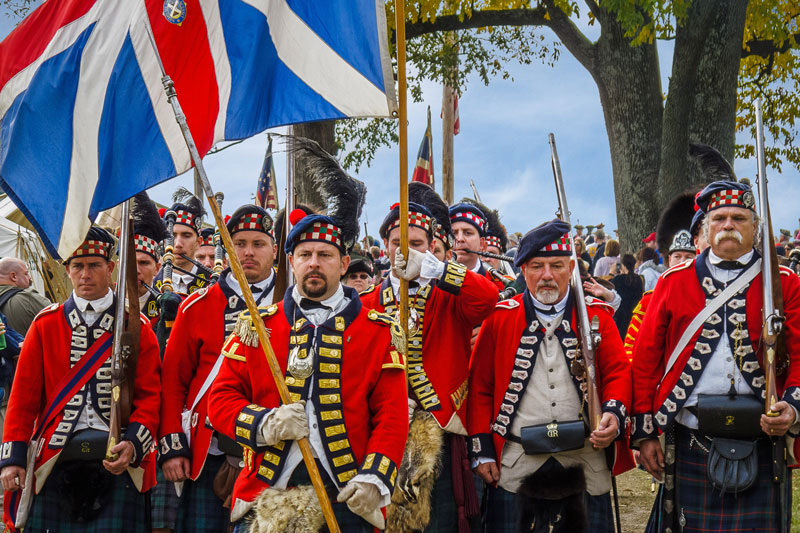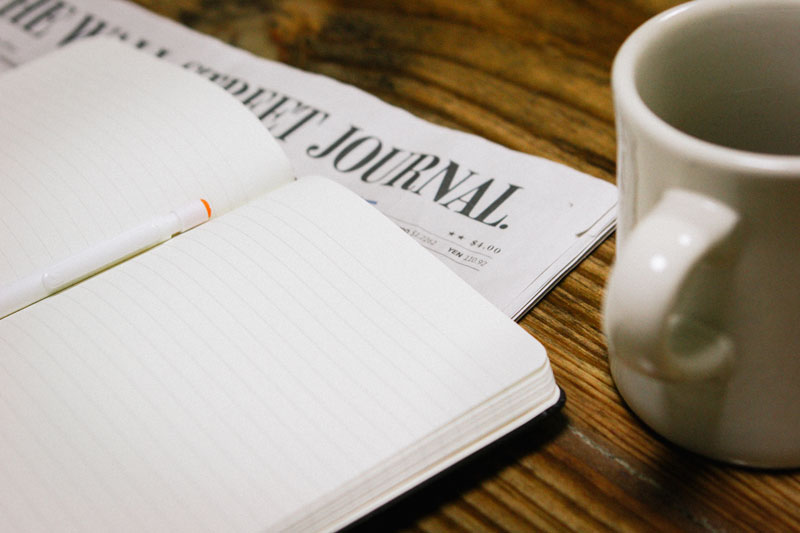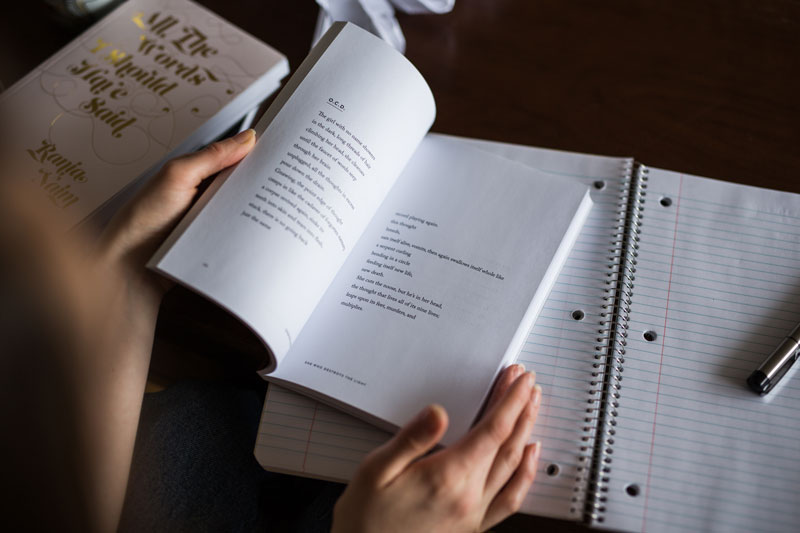
Thriller Writing
If you are dedicated, determined and love this exciting genre, the course will show you how to understand…
Learn more…| No. of lessons: | 16 |
| No. of exercises: | 53 |
| Average duration: | 12-18 months |
| Fee paid in full | £445.00 |
| Fee paid in instalments | |
| Deposit: | £100.00 |
| Monthly payment: | £90.00 |
| Number of payments: | 4 |
| Total fees: | £460.00 |
Receive a graded Diploma upon successful completion
Work with experienced journalists during your course
Work at your own pace and start at a time that suits you
This course will train you in a whole range of skills, all of which are required for a successful career as a staff journalist. You will learn the techniques of interviewing and reporting through the practical experience of your assignments as well as writing an intro, feature and editorial articles, profiles, and handouts.
You will see how to handle a running story, understand the importance of house style, basic 'subbing', creating headlines and captions, and presenting copy. It also gives a thorough grounding in the theory and practice of newsroom techniques, as well as covering in detail the legal and ethical aspects required.
The myths and realities, responsibilities and ethics of the profession. How the British Press has evolved and the legacy it has given to the world's Press. The battle to maintain and increase circulation figures. The five main categories of newspaper, from the national dailies to the provincial weeklies. An introduction to magazines and trade and technical journals. The hierarchy of a daily paper.
Assessment tasks include:
Writing a factual report of a recent event
Provision of information about you and your interests
How to develop a strong news sense and recognise the different factors which dictate the strength and prominence of published stories. Identifying the professional skills and personal qualities required of the news reporter. How to make contacts and identify and follow up story leads.
Assessment tasks include:
Rewriting poorly written copy
Filing a 250-word news story
Assigned the job of junior reporter on a provincial weekly paper, you will learn essential basic newsgathering and copy-writing skills. The importance of the news diary in allocating workloads, what is involved in making the 'calls' and how reporters set about crafting accurate and attention-grabbing 'intros'.
Assessment tasks include:
Writing a brief news item
Editing a press release
What can be learnt from experience? Insight and instinct, the accurate interpretation of complex facts and their repercussions. Your first visit to a magistrates' court - how cases are reported. The basic rules of interviewing, both face-to-face and by telephone. The skills required and pitfalls to avoid.
Assessment tasks include:
Writing up a court report
Conducting an interview and writing it up
Getting to grips with the most fundamental journalistic skills - filing clean, accurate copy, understanding the purpose of house style and learning how newspaper English differs from other forms of writing. How and where to find important information in a hurry and how to produce news items based on information culled from handouts and press releases.
Assessment tasks include:
Writing up a lively news story for an evening paper
Life on a busy evening paper. Its structure and staff hierarchy, the importance of deadlines and the use of separate editions. Covering a typical case in the Crown Court; how to present a 'running story' and a news special; the treatment required for gossip and diary column stories.
Assessment tasks include:
Covering a running story
Selecting a news item for treatment as a 'special'
Writing two items for a gossip column
How national newspapers differ from the provincial press. The importance of politics and exclusives; what is meant by a 'national outlook', issues surrounding chequebook journalism and other ethical concerns. How nationals identify their target readership, and how that shapes their content.
Assessment tasks include:
Comparing news styles in the morning dailies
Writing a feature article based on a major news story
Legal restrictions and how journalists can avoid costly legal action. The dangers of libel and other pitfalls; qualified privilege and unintentional defamation; criminal libel; and the need for fairness and accuracy. Restrictions on court reporting, and the dangers of contempt of court when matters are sub judice. The Official Secrets Act, the rights of the Press and a brief look at copyright.
Assessment tasks include:
Tackling a specialist column or feature
Producing a safe, fair and accurate crime report
Defining legal terminology
The different structure and style required for a features article. How to gauge the right approach, focus on the importance of interviews in features writing and how to adapt the tone and style to the subject. Dealing with topical news features.
Assessment tasks include:
Comparing the merits of published news features and personal profiles
Progressing to in-depth features profiles; how to conduct successful face-to-face interviews. What is meant by 'standfirsts'; using different features introductions to play up a strong news angle or maximise the story's human interest. Exploring eyewitness and offbeat approaches.
Assessment tasks include:
Sizing and positioning pictures
Tackling a 600-800 word in-depth features profile
The special skills required by a range of specialist newspaper writers - from motoring journalists to gossip writers, from foreign correspondents and political columnists to critics, sports writers and photo-journalists.
Assessment tasks include:
Filing a despatch as a foreign correspondent
Writing a book, film or TV review
Tackling a specialist column or feature
The role and duties of the sports reporter and the sporting commentator. How magazines differ from newspapers in style and approach. The opportunities to specialise in different fields, from the 'glossies' to the trade and technical press.
Assessment tasks include:
Compiling a sports round-up
Reporting a live sporting event
Developing and writing stories as magazine features
As part of a comprehensive review of your training to date, here you will undertake a self-assessment exercise and learn how trainee journalists can move up the ladder. Using subediting skills to sharpen your writing style; how to use proof marks.
Assessment tasks include:
Drawing up a personal 12-month action plan with clear achievement targets
This final lesson gives you the vital preparation required to launch your subediting careers, whether on a full-time or part-time basis. Detailed revision notes provide an opportunity to tie up any loose ends in your training, with business-like advice aimed at pursuing a professional approach to future subediting assignments.
Assessment tasks include:
Subediting copy for a national paper
Writing headlines for news and features
The differences in approach between broadcast and print journalism. Learning the requirements of broadcast news presentation and the relevant technical terms. How not to succumb to stress and how scripted narration and pre-recorded items are integrated to form a broadcast news item. The techniques of 'voice-over' and 'piece to camera'; the skills of the radio and TV commentator.
Assessment tasks include:
Covering a news story for radio and TV transmission
Putting together pictures, sound and interviews
The high-pressure world of the senior editorial executive - the role and responsibilities, the skills and personal qualities required and the significance of circulation figures and advertising revenue in deciding the fate of different titles.
Assessment tasks include:
Dealing with a series of dilemmas facing the editor of a busy evening paper

If you are dedicated, determined and love this exciting genre, the course will show you how to understand…
Learn more…
The ability to communicate effectively is a priority for anyone wishing to succeed in business. …
Learn more…
If you have an understanding of English History from Roman Britain to the European Union you will…
Learn more…
The great advantage of freelance writing is that it can be done either in conjunction with another…
Learn more…
The great advantage of freelance writing is that it can be done either in conjunction with another…
Learn more…
The great advantage of freelance writing is that it can be done either in conjunction with another…
Learn more…
The great advantage of freelance writing is that it can be done either in conjunction with another…
Learn more…
This course was written specially to help those who want to write straightforward, correct English…
Learn more…
This course will train you in a whole range of skills, all of which are required for a successful…
Learn more…
This course takes the form of 12 lessons which incorporate reading, writing and revision assignments…
Learn more…
This 12-lesson course is designed to give a basic understanding of how to create web content as …
Learn more…
A good novelist offers the reader a story in which events and actions have logical but unpredictable…
Learn more…
Poetry has enjoyed a revival in the last five years, with more people writing and reading it than…
Learn more…
What is a romantic novel? It’s usually a story in which boy meets girl, boy loses girl, then …
Learn more…
Although writers attract the plaudits (and brickbats) of the literary world, those who work on the…
Learn more…
Whether a short story is meaningful and gritty or light entertainment, a good one is a work of art…
Learn more…
Most people have fond memories of books that they read as a child, stories that made them laugh, …
Learn more…